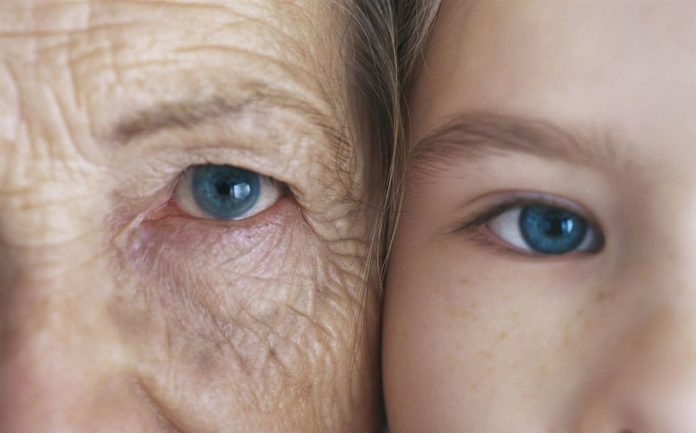Rather than simply delaying ageing, the new treatment actively reverses it backwards.
Although age is simply a number, it has a lot of negative consequences, such as brittle bones and weak muscles, as well as an increased risk of cardiovascular disease and cancer.
Scientists at the Salk Institute have now demonstrated that they can safely and efficiently reverse the aging process in middle-aged and old mice by partially resetting their cells to more youthful states.
“We are elated that we can use this approach across the life span to slow down aging in normal animals. The technique is both safe and effective in mice,” said Juan Carlos Izpisua Belmonte, co-corresponding author. “In addition to tackling age-related diseases, this approach may provide the biomedical community with a new tool to restore tissue and organismal health by improving cell function and resilience in different disease situations, such as neurodegenerative diseases.”
As organisms get older, more than just their looks and health change. Every cell in their bodies has a molecular clock that tells them how long it has been since the last time they saw the sun or slept. Cells isolated from older humans or animals exhibit distinct chemical patterns along with their DNA, dubbed epigenetic markers when compared to cells isolated from younger people or animals. Scientists have discovered that by combining four reprogramming molecules—Oct4, Sox2, Klf4, and cMyc, collectively referred to as “Yamanaka factors”—into cells, these epigenetic marks can be restored to their original patterns. This method allows researchers to turn adult cells into stem cells at a later stage of development.
In 2016, Izpisua Belmonte’s lab demonstrated for the first time that the Yamanaka factors may be used to slow down the signs of aging and extend the lifespan of mice with a premature aging condition. The team recently discovered that Yamanaka factors can speed up muscle regeneration in young mice. Other scientists have utilized the same strategy to improve the function of other tissues such as the heart, brain, and optic nerve, which is crucial in vision, as a result of these first findings.
Izpisua Belmonte and colleagues conducted a new study in which they examined variations of the cellular rejuvenation strategy in healthy animals as they aged. One group of mice was given Yamanaka factors on a regular basis from the time they were 15 months old until they were 22 months old, which is about equal to human ages 50 to 70. Another group was treated for 12 to 22 months, or 35 to 70 years in human years. A third group was given treatment for just one month at the age of 25 months, which is similar to the human age of 80.
“What we really wanted to establish was that using this approach for a longer time span is safe,” adds Pradeep Reddy, co-first author of the new paper. “Indeed, we did not see any negative effects on the health, behavior or body weight of these animals.”
In comparison to control animals, the Yamanaka factors had no effect on blood cell or neurological development in the mice. Furthermore, no malignancies were discovered in any of the groups of animals.
When the researchers examined normal markers of aging in the mice that had received the treatment, they discovered that the mice resembled younger animals in many ways. The epigenetics of treated animals were more similar to epigenetic patterns seen in younger animals in both the kidneys and the skin. When treated animals were damaged, their skin cells had a stronger ability to proliferate and were less likely to form permanent scars, whereas older animals have less skin cell proliferation and more scarring. Furthermore, metabolic components in the blood of treated mice showed no signs of normal aging.
This youthfulness was detected in mice treated with Yamanaka factors for seven or ten months, but not in animals treated for just one month. Furthermore, the effects of the treatment were not yet apparent when the animals were evaluated halfway through their treatment. This shows that the treatment isn’t simply delaying aging, but actually reversing it—though further research is needed to distinguish the two.
The team is now working on a study to see how long-term treatment with the Yamanaka factors affects individual molecules and genes. They’re also coming up with innovative ways to convey the factors.
“At the end of the day, we want to bring resilience and function back to older cells so that they are more resistant to stress, injury and disease,” adds Reddy. “This study shows that, at least in mice, there’s a path forward to achieving that.”
Source: 10.1038/s43587-022-00183-2
Image Credit: Getty
You were reading: Can we cheat aging or even death? New study shows a potential way
